Imvited speakers
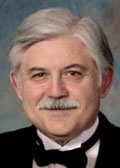 Prof. Murat BALABAN has a Chemical Engineering degree with honors from Middle East Technical University (METU), and a Ph.D. in Food Science and Technology from the University of Washington. He was a professor of Food Processing and Engineering at the University of Florida until 2008. Currently, he is the director of the Fishery Industrial Technology Center of the University of Alaska. He graduated 40 M.Sc. and Ph.D. students, and participated in the committees of more than 100 graduate students. He has 4 patents, more than 120 refereed publications, more than 40 book chapters, and is the co-editor of 2 books. His main research interest is the automation of quality evaluation of foods.
Prof. Murat BALABAN has a Chemical Engineering degree with honors from Middle East Technical University (METU), and a Ph.D. in Food Science and Technology from the University of Washington. He was a professor of Food Processing and Engineering at the University of Florida until 2008. Currently, he is the director of the Fishery Industrial Technology Center of the University of Alaska. He graduated 40 M.Sc. and Ph.D. students, and participated in the committees of more than 100 graduate students. He has 4 patents, more than 120 refereed publications, more than 40 book chapters, and is the co-editor of 2 books. His main research interest is the automation of quality evaluation of foods.
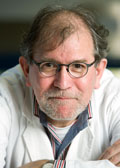 Prof. Rijkelt BEUMER is food microbiologist at Wageningen University, The Netherlands. His research is concentrated on the behaviour of pathogenic micro-organisms in food and in the environment. He is responsible for a number of research students, working on the following topics: detection and behaviour of pathogens in industrial and domestic environments, improving media and methods for the (rapid) detection of pathogens, and the effect of exogeneous factors (e.g. preservation, low water activity and disinfectants) on micro-organisms. This work has been published in national and international peer-reviewed journals. From the time he isolated Listeria monocytogenes from all sampling sites in houses, his work has concentrated also on the presence and the behaviour of foodborne pathogens in domestic environments. He is an active member of national (Dutch Standards Institute Committee for food microbiology) and
international organizations (CEN and ISO groups for food microbiology). Moreover, he is a member of the editorial board of the Journal of Food Protection.
Prof. Rijkelt BEUMER is food microbiologist at Wageningen University, The Netherlands. His research is concentrated on the behaviour of pathogenic micro-organisms in food and in the environment. He is responsible for a number of research students, working on the following topics: detection and behaviour of pathogens in industrial and domestic environments, improving media and methods for the (rapid) detection of pathogens, and the effect of exogeneous factors (e.g. preservation, low water activity and disinfectants) on micro-organisms. This work has been published in national and international peer-reviewed journals. From the time he isolated Listeria monocytogenes from all sampling sites in houses, his work has concentrated also on the presence and the behaviour of foodborne pathogens in domestic environments. He is an active member of national (Dutch Standards Institute Committee for food microbiology) and
international organizations (CEN and ISO groups for food microbiology). Moreover, he is a member of the editorial board of the Journal of Food Protection.
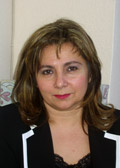 Prof. Eugenia BEZIRTZOGLOU attended Biochemistry at the University of Lille (France), Hematology and Parasitology at the Medical School of Lille (France). She continued her education by obtaining a Medical Degree, a PhD Thesis (Universite Paris-Sud) and an Habilitation Degree (Universite Paris-Sud). As Medical Doctor she is specialized in Microbiology (Biopathology) and Clinical Chemistry. Furthermore, she completed her scientific knowledge by post-education studies in the Laboratory of Gastrointestinal Microbial Ecology at Karolinska Institutet and at the Reference Laboratory of Anaerobic Bacteria at UCLA, Los Angeles, USA. She has published more than 120 international publications, 15 chapters in books and 3 books. She is often invited to participate in International Commitees (ECDC section enteric pathogens, European evaluation programs, PhD Thesis). Currently, she is full Professor in Microbiology at Democritus University of Thrace. Her main fields of interest include microbial ecology, gastrointestinal microflora, food and environmental microbiology.
Prof. Eugenia BEZIRTZOGLOU attended Biochemistry at the University of Lille (France), Hematology and Parasitology at the Medical School of Lille (France). She continued her education by obtaining a Medical Degree, a PhD Thesis (Universite Paris-Sud) and an Habilitation Degree (Universite Paris-Sud). As Medical Doctor she is specialized in Microbiology (Biopathology) and Clinical Chemistry. Furthermore, she completed her scientific knowledge by post-education studies in the Laboratory of Gastrointestinal Microbial Ecology at Karolinska Institutet and at the Reference Laboratory of Anaerobic Bacteria at UCLA, Los Angeles, USA. She has published more than 120 international publications, 15 chapters in books and 3 books. She is often invited to participate in International Commitees (ECDC section enteric pathogens, European evaluation programs, PhD Thesis). Currently, she is full Professor in Microbiology at Democritus University of Thrace. Her main fields of interest include microbial ecology, gastrointestinal microflora, food and environmental microbiology.
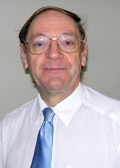 Prof. Stanley P. CAUVAIN is a Director of BakeTran (www.baketran.com) and responsible for its Research and Development activities. He has an internationally recognised reputation as an authority on the science and technology of milling and baking and regularly presents at international events. He has been involved in commercial and technical aspects of milling and baking for over 45 years and was the 1998 recipient of the UK British Baker Special Award for achievements in the baking industry. A Past President (2004-06) of the International Association for Cereal Science and Technology (ICC), awarded the Friedrich Schweitzer medal in 2004, a Fellow of the ICC Academy and co-editor in chief of Quality Assurance and Safety of Crops & Foods. Has co-authored/edited 10 technical books on milling and baking, contributed 24 book chapters and has over 100 scientific and technical publications in the international literature.
Prof. Stanley P. CAUVAIN is a Director of BakeTran (www.baketran.com) and responsible for its Research and Development activities. He has an internationally recognised reputation as an authority on the science and technology of milling and baking and regularly presents at international events. He has been involved in commercial and technical aspects of milling and baking for over 45 years and was the 1998 recipient of the UK British Baker Special Award for achievements in the baking industry. A Past President (2004-06) of the International Association for Cereal Science and Technology (ICC), awarded the Friedrich Schweitzer medal in 2004, a Fellow of the ICC Academy and co-editor in chief of Quality Assurance and Safety of Crops & Foods. Has co-authored/edited 10 technical books on milling and baking, contributed 24 book chapters and has over 100 scientific and technical publications in the international literature.
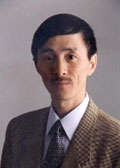 Assoc. Prof. Hao FENG received a B.E. degree and a Postgraduate Certificate both in Chemical Machinery Engineering from the Dalian University of Technology in 1982 and 1987, respectively. After about ten years of teaching and research at universities in China, he worked as a Research Officer in the Department of Chemical and Materials Engineering at the University of Auckland, New Zealand for about two years. He continued his education at Washington State University, where he received a Ph.D. in Food Engineering in 2000. He joined the Department of Food Science and Human Nutrition as an Assistant Professor in 2001. His research interests include high intensity power ultrasound and its application in food processing and preservation, enhancing the safety and quality of fresh and fresh-cut produce, novel deconstruction methods for biofuel production from biomass, new extraction
and separation techniques, dielectric heating and its application in food processing, and novel drying technologies. His previous research activities also involved work with fluid mixing and the analysis of pressurized components. He is a member of the Institute of Food Technologists (IFT), the American Institute of Chemical Engineers (AIChE), and the American Society of Agricultural and Biological Engineers (ASABE).
Assoc. Prof. Hao FENG received a B.E. degree and a Postgraduate Certificate both in Chemical Machinery Engineering from the Dalian University of Technology in 1982 and 1987, respectively. After about ten years of teaching and research at universities in China, he worked as a Research Officer in the Department of Chemical and Materials Engineering at the University of Auckland, New Zealand for about two years. He continued his education at Washington State University, where he received a Ph.D. in Food Engineering in 2000. He joined the Department of Food Science and Human Nutrition as an Assistant Professor in 2001. His research interests include high intensity power ultrasound and its application in food processing and preservation, enhancing the safety and quality of fresh and fresh-cut produce, novel deconstruction methods for biofuel production from biomass, new extraction
and separation techniques, dielectric heating and its application in food processing, and novel drying technologies. His previous research activities also involved work with fluid mixing and the analysis of pressurized components. He is a member of the Institute of Food Technologists (IFT), the American Institute of Chemical Engineers (AIChE), and the American Society of Agricultural and Biological Engineers (ASABE).
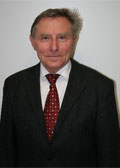 Prof. Heinz-Dieter ISENGARD received his doctoral degree from the University of Stuttgart, in 1972. He is now Professor for Food Analysis at the Institute of Food Science and Biotechnology of the University of Hohenheim. His main research areas are the determination of water in food and the degradation of frying fats during usage. In 1992 he received the International Hydranal Award of the company Riedel-de Haën for a work on the determination of the water content of foodstuffs by Karl Fischer titration, awarded at the Analytica '92 in Munich. In 1996 he became Honorary Professor of the Moscow State University of Food Production. In 2001 he was Guest Professor at the Gadjah Mada Univeristy in Indonesia. In 2007 he was awarded an honorary doctor degree by the Banat’s University of Agricultural Sciences and Veterinary Medicine, Romania. He is member of several scientific associations. He was Chair of the Internat ional Division (2003-2004) of the Institute of Food Technologists Chicago. He presented his work at scientific events all over the world, has published many articles and has written several book chapters. He was organiser and chairman of numerous scientific symposia and workshops in several countries. He was the initiator of the Conferences on Water in Food which are held every second year since 2000: 2000 in Italy, 2002 in France, 2004 in Switzerland, 2006 in Belgium and 2008 in Germany. He is member of the editorial board of scientific journals and was Guest editor of
Prof. Heinz-Dieter ISENGARD received his doctoral degree from the University of Stuttgart, in 1972. He is now Professor for Food Analysis at the Institute of Food Science and Biotechnology of the University of Hohenheim. His main research areas are the determination of water in food and the degradation of frying fats during usage. In 1992 he received the International Hydranal Award of the company Riedel-de Haën for a work on the determination of the water content of foodstuffs by Karl Fischer titration, awarded at the Analytica '92 in Munich. In 1996 he became Honorary Professor of the Moscow State University of Food Production. In 2001 he was Guest Professor at the Gadjah Mada Univeristy in Indonesia. In 2007 he was awarded an honorary doctor degree by the Banat’s University of Agricultural Sciences and Veterinary Medicine, Romania. He is member of several scientific associations. He was Chair of the Internat ional Division (2003-2004) of the Institute of Food Technologists Chicago. He presented his work at scientific events all over the world, has published many articles and has written several book chapters. He was organiser and chairman of numerous scientific symposia and workshops in several countries. He was the initiator of the Conferences on Water in Food which are held every second year since 2000: 2000 in Italy, 2002 in France, 2004 in Switzerland, 2006 in Belgium and 2008 in Germany. He is member of the editorial board of scientific journals and was Guest editor of
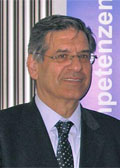 Prof. Harun PARLAR received his PhD in 1971 at the University of Bonn/Germany in the area of Photochemical Induced Reactions and worked afterwards as assistant in the Department of Organic Chemistry. Until 1994 his career evolved as a visiting Professor for Analytical Chemistry at the University of Istanbul, as head of Department for Environmental Science, Society for Radiation and Environmental Research (today Helmholtz Zentrum Munich) Germany, Dean of the Biology and Chemistry Faculty at Kassel University, and there as Chair for Analytical Chemistry. During this time, he became worldwide acknowledged especially by developing standards for the analysis of chemical hazards, such as for organochlorine compounds. In 1994 he took over the Chair of Analytical Chemistry at TU Munich and devoted his work to subjects of further development of analytical chemistry. At present time he is Director of the Research Center for Brewing and Food Quality, and of the Competence Pool Weihenstephan, to promote efficient technology and knowledge transfer between industry and university. He recently became Execu tive Director of the Bavarian Research Alliance to support Bavarian science and innovation within the European research area. His professional work has led to several awards, including SECOTOX, VARIAN, Gold Medals of MESAEP and BENA, the IAES Certification of Merit, the Heinz-Meier-Leibnitz Medal of TU Munich for his work in analytical chemistry, and the Elvira-Schecklies Price for his cooperation works between science and economy.
Prof. Harun PARLAR received his PhD in 1971 at the University of Bonn/Germany in the area of Photochemical Induced Reactions and worked afterwards as assistant in the Department of Organic Chemistry. Until 1994 his career evolved as a visiting Professor for Analytical Chemistry at the University of Istanbul, as head of Department for Environmental Science, Society for Radiation and Environmental Research (today Helmholtz Zentrum Munich) Germany, Dean of the Biology and Chemistry Faculty at Kassel University, and there as Chair for Analytical Chemistry. During this time, he became worldwide acknowledged especially by developing standards for the analysis of chemical hazards, such as for organochlorine compounds. In 1994 he took over the Chair of Analytical Chemistry at TU Munich and devoted his work to subjects of further development of analytical chemistry. At present time he is Director of the Research Center for Brewing and Food Quality, and of the Competence Pool Weihenstephan, to promote efficient technology and knowledge transfer between industry and university. He recently became Execu tive Director of the Bavarian Research Alliance to support Bavarian science and innovation within the European research area. His professional work has led to several awards, including SECOTOX, VARIAN, Gold Medals of MESAEP and BENA, the IAES Certification of Merit, the Heinz-Meier-Leibnitz Medal of TU Munich for his work in analytical chemistry, and the Elvira-Schecklies Price for his cooperation works between science and economy.
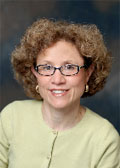 Prof. Zeynep ÜSTÜNOL is currently a Professor of Food Science and Human at Michigan State University. She received her B.S. and M.S. degrees in 1981 and 1983, respectively from Utah State University in Food Science. She completed her Ph.D. degree in Food Science with a minor in Biochemistry at University of Kentucky. After a two year postdoctoral fellowship at University of Kentucky, she joined the faculty at Michigan State University in 1991. She is an active member of Institute of Food Technologists (IFT), American Dairy Science Association (ADSA), American Chemical Society (ACS) and American Association for Advancement of Science (AAAS). She is 2002 recipient of Fulbright Senior Research Scholar Award to New Zealand, and the 2005 recipient of American Dairy Science Association Milk Industry Foundation Outstanding Teaching Award. During 2004 – 2008 she served as the Editor and Senior Editor of highly respected Journal of Dairy Science. Currently, she serves on the review panel for Fulbright Awards.
Prof. Zeynep ÜSTÜNOL is currently a Professor of Food Science and Human at Michigan State University. She received her B.S. and M.S. degrees in 1981 and 1983, respectively from Utah State University in Food Science. She completed her Ph.D. degree in Food Science with a minor in Biochemistry at University of Kentucky. After a two year postdoctoral fellowship at University of Kentucky, she joined the faculty at Michigan State University in 1991. She is an active member of Institute of Food Technologists (IFT), American Dairy Science Association (ADSA), American Chemical Society (ACS) and American Association for Advancement of Science (AAAS). She is 2002 recipient of Fulbright Senior Research Scholar Award to New Zealand, and the 2005 recipient of American Dairy Science Association Milk Industry Foundation Outstanding Teaching Award. During 2004 – 2008 she served as the Editor and Senior Editor of highly respected Journal of Dairy Science. Currently, she serves on the review panel for Fulbright Awards.
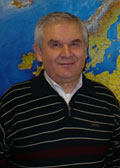 Prof. Gyula VATAI is a University Professor, Corvinus University of Budapest, Vice Dean for Education at Faculty of Food Science, Head of the Department of Food Engineering. He is teaching Food Unit Operations III and IV, which are dealing with mass transfer operations. He is one of the founders of the educational structure of the Process Engineering Branch. He developed and first taught the subjects of Modern Separation Processes, Food Process Plant Design and Bioreactor Design & Development, Application of Separation Processes in Food Engineering and Environmental Protection. He achieved a significant result in elaboration of hydrodynamics and mass transfer in bioreactors, liquid-liquid extraction and membrane separation processes. His actual research is focused on application of membrane technology in drinking water treatment, fruit juice concentration with complex membrane processes and waste water separation as well as modelling of mass transfer in membrane separation processes.
Prof. Gyula VATAI is a University Professor, Corvinus University of Budapest, Vice Dean for Education at Faculty of Food Science, Head of the Department of Food Engineering. He is teaching Food Unit Operations III and IV, which are dealing with mass transfer operations. He is one of the founders of the educational structure of the Process Engineering Branch. He developed and first taught the subjects of Modern Separation Processes, Food Process Plant Design and Bioreactor Design & Development, Application of Separation Processes in Food Engineering and Environmental Protection. He achieved a significant result in elaboration of hydrodynamics and mass transfer in bioreactors, liquid-liquid extraction and membrane separation processes. His actual research is focused on application of membrane technology in drinking water treatment, fruit juice concentration with complex membrane processes and waste water separation as well as modelling of mass transfer in membrane separation processes.

